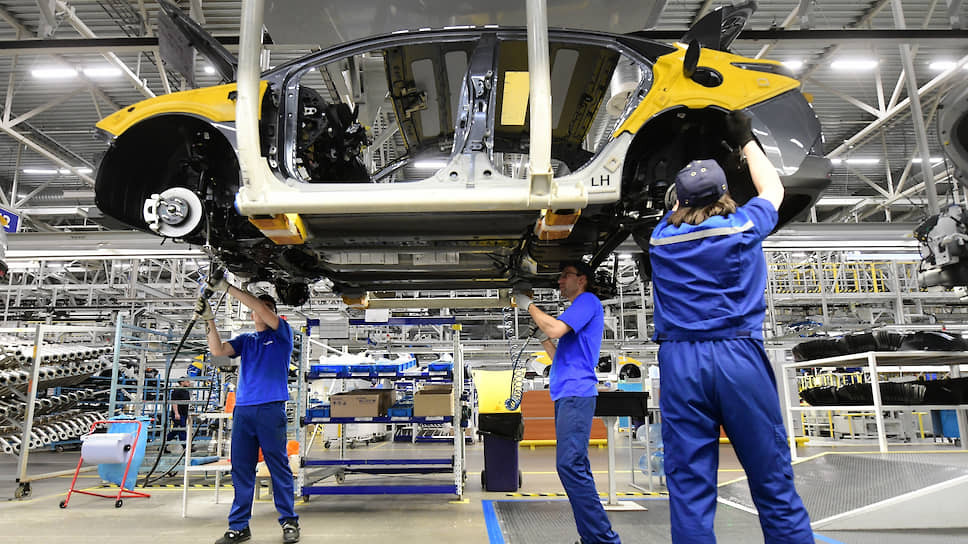The tense geopolitical situation in Eastern Europe forced market analysts to reduce forecasts for global auto production in 2022-2023. For example, against the backdrop of the Russian-Ukrainian conflict, many plants in Europe have closed, and the cost of already expensive materials has increased by several times.
Although some enterprises in Ukraine tried to keep working under the conditions of military operations, their productivity has recently decreased significantly.

In March, the analytical company S&P Global Mobility reduced forecasts on the volume of sales of the world car industry in the current and next years on average by 2.6 million units. In the worst-case scenario, experts believe, the supply in the global market will shrink in the next two years by 4 million. Meanwhile, according to preliminary scenarios of analysts from S&P Global Mobility, sales in the European automotive industry will decrease by 9%, or by 10 million cars.
However, the decrease in sales volumes in the two conflicting states is far from being the main reason for the reduction in global forecasts. Thus, at the end of 2021, the total share of buyers from Russia and Ukraine in the global market is only 2% of total sales.
The main problem here is the shortage of parts for European car manufacturers. If tensions in the geopolitical situation in Eastern Europe continue to rise, material shortages will spread to other markets.
Earlier, the international rating agency S&P Global Ratings has already published alarming forecasts for 2022. Thus, according to preliminary scenarios of experts, this year the level of global car sales will decrease by 2% compared to the volume of the past year. At the same time, back in the fall of 2021, analysts assumed an increase in this indicator in 2022 by 4-6%.
In addition, S&P Global Ratings said that one of the most important reasons for the downgrade of the forecasts voiced earlier is the problems in the logistics of key parts from the war-torn region, including automotive harnesses made in Ukraine. Another significant circumstance is the threat of disruption of raw material supplies. Russia currently produces about 40% of the world's palladium. This metal is necessary to reduce the toxic emissions of cars. In addition, the global automotive industry uses Russian nickel and iron, the supply of which is decreasing day by day.
An important factor in the decline of the global auto industry was a sharp drop in sales in China against the background of restrictions related to the containment of the spread of the pandemic. Earlier, to combat the Omicron strain, Chinese authorities imposed strict restrictions in Jilin province and Shanghai, the largest business center of the state.
Thus, according to the Chinese Association of Automobile Manufacturers (CAAM), compared with 2021, in March, the volume of sales in the key global car market decreased by 11.7% to 2.23 million cars. In February, this indicator soared by 18.7%. Recently, experts from CAAM said that no tangible improvements were recorded this month.
One of the most affected by the current situation was Tesla. On March 28, its management suspended production at its plant in Shanghai.
In March, Tesla produced only 55,462 vehicles. In January, the plant produced 68,117 cars.
According to the company's internal statistics, exports of Tesla cars assembled in China plummeted to 60 in March, while domestic shipments soared twice as much as in February.
The day before, Chinese buyers were rapidly buying up the plant's products, fearing that Tesla would increase prices at any moment amid a permanent rise in the cost of raw materials.
However, Tesla was not alone. Many other representatives of the Asian car industry suffered from severe lockdowns related to the uncontrolled spread of COVID-19. At the beginning of April, Chinese electric car developer Nio suspended production due to a supply chain disruption. At that time, the value of the carmaker's securities instantly fell by 9%.
Volkswagen's Shanghai joint venture was also forced to interrupt production in April. In mid-March, Volkswagen and Toyota Motor Corp's joint ventures with their Chinese partners in Jilin Province suspended operations.
Another victim of hard lockdowns in China was CATL, the largest manufacturer of batteries for electric vehicles and energy storage systems. Earlier, to maintain the necessary level of production, the company implemented a "closed control loop" system in which employees live and work at home to avoid the spread of COVID-19.
By the way, in contrast to the large March drop in sales of classic cars in China, sales of new energy source products (battery-powered electric cars and hydrogen fuel cell cars) soared by half in March, to 484,000 units. Despite the spectacular growth, the figures were far from peaks. By comparison, sales of this type of product more than tripled in February.





















